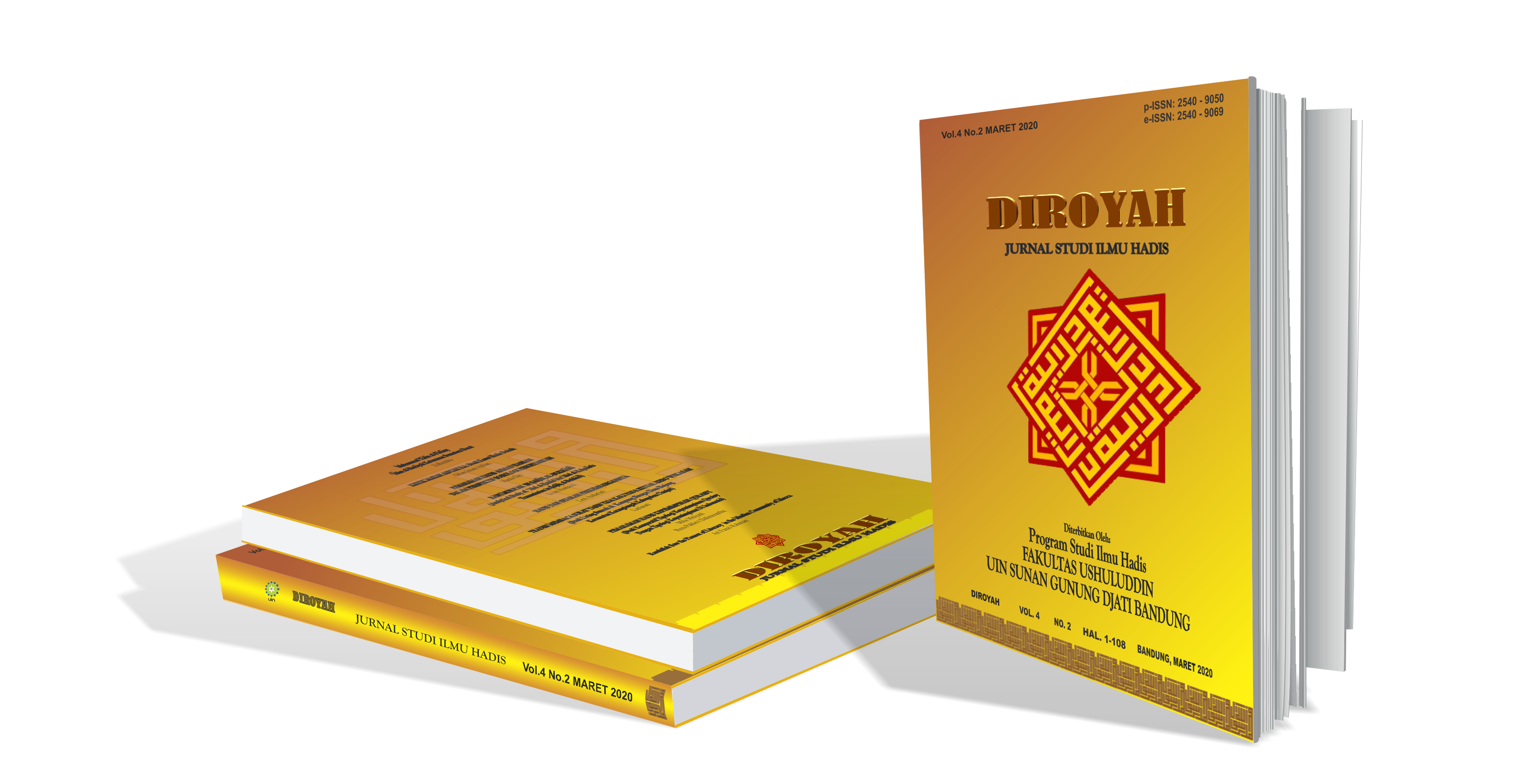Integrating Hadith Into Education: Bridging The Gap Between Traditional Islamic Scholarship and Modern Learning
Main Article Content
Abstract
Article Details
Authors who publish with this journal agree to the following terms:
- Authors retain copyright and grant the journal right of first publication with the work simultaneously licensed under a Creative Commons Attribution-NonCommercial-ShareAlike 4.0 International License that allows others to share the work with an acknowledgment of the work's authorship and initial publication in this journal.
- Authors are able to enter into separate, additional contractual arrangements for the non-exclusive distribution of the journal's published version of the work (e.g., post it to an institutional repository or publish it in a book), with an acknowledgment of its initial publication in this journal.
- Authors are permitted and encouraged to post their work online (e.g., in institutional repositories or on their website) prior to and during the submission process, as it can lead to productive exchanges, as well as earlier and greater citation of published work (See The Effect of Open Access).
References
Abushihab, I. G., & Hussin, S. (2017). Integration of hadith into modern education: Opportunities and challenges. Journal of Education and Social Sciences, 6(1), 42-48.
Abushihab, I. G., & Hussin, S. (2017). Challenges and Opportunities of Integrating Hadith in Modern Education. Journal of Islamic Thought and Civilization, 7(2), 35-44.
Ahmed, A., & Ahmed, H. (2020). Integrating Hadith into Education: An Exploratory Study. Journal of Education and e-Learning Research, 7(1), 9-17. doi: 10.20448/journal.509.2020.71.9.17
Al-Ahsan, M. (2019). The role of Hadith in the development of critical thinking skills and ethical values among students. International Journal of Islamic Thought, 15(1), 23-36.
Al-Ahsan, M. N. (2019). The Importance of Integrating Hadith in Islamic Education. Journal of Education and Learning (EduLearn), 13(2), 224-231.
Al-Asqalani, I. H. (1992). Fath al-Bari Sharh Sahih Al-Bukhari. Beirut: Dar al-Kutub Al-Ilmiyah.
Al-Haj, M. A., & Hassan, M. K. (2017). The integration of hadith in Islamic education: a literature review. Al-Shajarah: Journal of the International Institute of Islamic Thought and Civilization (ISTAC), 22(2), 227-246.
Ali, K. (2016). Reading Bukhari in the 21st Century: Gender, Ethnicity, and Epistemology. Journal of Religious Ethics, 44(4), 616-633. doi: 10.1111/jore.12157
Ali, K. (2019). Significance of Hadith in Islamic education. Journal of Education and Educational Development, 6(1), 38-53.
Ali, M., & Hussain, S. (2018). The Effectiveness of Hadith-Based Teaching in Enhancing Moral Values among Malaysian Students. The Journal of Social Sciences Research, 4(1), 9-13.
Ali, S. S. M., & Rahman, N. A. A. (2019). Integrating Hadith-based lessons in a primary school curriculum: A case study of Malaysia. Journal of Islamic Studies and Culture, 7(2), 70-82.
Al-Musharraf, M. A. (2018). The integration of hadith in Islamic education. Journal of Education and Practice, 9(11), 31-38.
Al-Sulami, S. S. (2020). The integration of hadith in modern Islamic education: challenges and prospects. Journal of Education and e-Learning Research, 7(4), 363-371.
Arif, M., Amin, A. M., & Idris, A. N. A. (2020). Integrating Hadith into Higher Education Curriculum: An Exploratory Study. Journal of Islamic, Social, Economics and Development, 5(28), 1-14. doi: 10.26656/jised.v5i2.1286
Gharawi, H. M. H. (2019). The role of multimedia in enhancing the integration of hadith into Islamic education. Al-Qalam Journal, 24(1), 65-78.
Ismail, A. R., & Mohamad, S. S. (2020). The integration of hadith in Malaysian Islamic education system. International Journal of Academic Research in Business and Social Sciences, 10(1), 123-137.
Khan, F., & Rahman, M. (2016). Integration of Hadith in the Teaching of Biology and its Impact on the Academic Achievement of Secondary School Students in Bangladesh. Journal of Education and Practice, 7(16), 69-75.
M. A. B. M. Yakub, M. S. M. Yusoff, M. S. S. Hussain, M. H. Mohd Noor, and S. S. S. Mohd Radzi. (2020). The Integration of Hadith into the Curriculum: A Critical Analysis. International Journal of Advanced Science and Technology, 29(8), 10133-10140.
Mahmood, K., & Saeed, R. (2017). Role of Hadith in Developing Critical Thinking Skills Among Pakistani Students. Bulletin of Education and Research, 39(2), 63-72.
Muhaimin, A. G. (2021). Developing moral values through Hadith-based education. European Journal of Educational Research, 10(1), 171-183.
Muhaimin, A. G. (2021). The Role of Hadith in Shaping Islamic Education. AL IJTIMAI: Journal of Multidisciplinary Studies on Social and Humaniora, 4(2), 105-114.
Muhammad, A., Afzal, M., Abbas, Q., & Kamran, A. (2020). Role of hadith in character building of university students. Journal of Islamic Thought and Civilization, 10(1), 43-60.
Muhammad, S., Ullah, A., & Shabir, H. (2020). Integration of Hadith in Higher Education: A Case Study of Pakistan. Journal of Islamic Thought and Civilization, 10(2), 109-120.
Shahzad, S. J. W., & Suleiman, H. S. (2019). Integrating Hadith in Character Education Programs: An Exploratory Study. Journal of Education and Learning, 8(4), 239-249. doi: 10.5539/jel.v8n4p239
Wadud, A. (2009). Qur’an and Hadith: Is It a Marriage or a Divorce?. Journal of Islamic Studies, 20(2), 215-249. doi: 10.1093/jis/etp012

